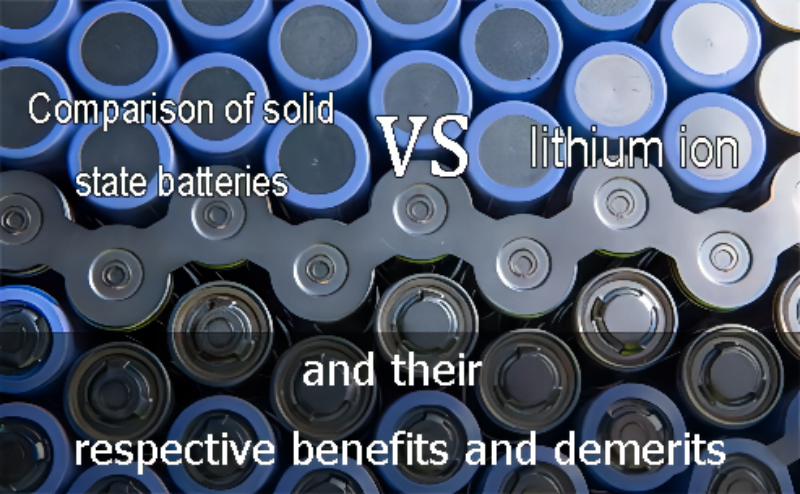
Main content:
- What is a lithium ion battery?
- What are the advantages and disadvantages of lithium ion batteries?
- What is a solid state battery?
- What are the advantages and disadvantages of solid-state batteries?
- How long do solid state batteries last?
- What are the differences between solid state batteries vs lithium ion?
- Are solid state batteries better than Li-ion batteries?
- Is a lifepo4 battery a solid state battery?Will lithium be used in solid-state batteries?
- How soon will solid state batteries be available?
- Summary
The importance of batteries in our day-to-day life cannot be ignored. Technological advancements have enabled batteries to power small devices such as smartphones and tablets as well as big devices such as electric bikes and electric vehicles. The most commonly used of these are lithium-ion rechargeable batteries, which can be used in a variety of applications such as home energy storage, wall mounted battery is is a typical one.
Having a reliable battery is vital. That’s why this article is going to help you clearly understand the comparison of solid state batteries vs lithium ion in every respect. You’ll get to know what solid state and lithium ion batteries are and how they work. You’ll further understand the differences between solid state batteries vs lithium ion and their advantages and disadvantages. Let’s dig right in!
1.What is a lithium ion battery?
A lithium ion (Li-ion) battery is a lithium-based rechargeable battery type. A typical battery has an anode, a cathode, an electrolyte, a separator, and two current collectors (commonly referred to as the positive and negative terminals).
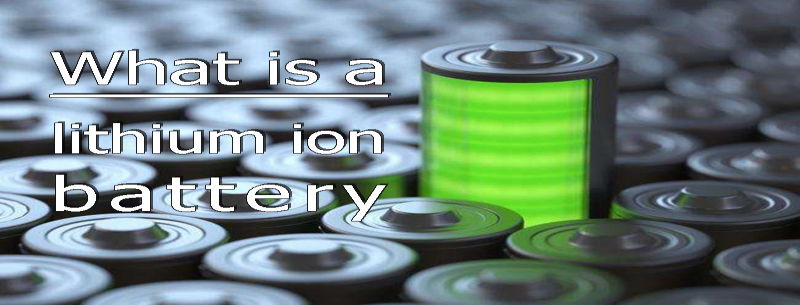
① How a lithium ion battery works?
A lithium ion battery stores lithium ions in the anode and cathode. The electrolyte transports lithium ions. During charging, lithium ions move from the cathode to the anode. The opposite happens during discharging – lithium ions stored in the anode is transported through the electrolyte to the cathode. When lithium ions move through the electrolyte, free electrons are created in the anode, creating a positive charge at your Li-ion battery’s positive terminal.
Current then flows to the device being powered. There are two functions of the battery separator, one is as an insulating layer to prevent the short circuit caused by the contact between the positive and negative electrodes. The second is to act as a semi-permeable layer to increase the concentration difference near the positive and negative batteries, which is conducive to the diffusion of ions, thereby improving the storage efficiency of the battery.
② Li-ion battery energy density
Energy density refers to the amount of energy stored in a certain unit of space or mass of matter. The energy density of a battery is the electrical energy released by the average unit volume or mass of the battery. Battery energy density = battery capacity × discharge platform/battery thickness/battery width/battery length, it is measured in Wh/kg (watt-hour/kg). The greater the energy density of the battery, the more electricity can be stored per unit volume. A typical Li-ion battery’s energy density ranges from 100-265 Wh/kg, which is significantly higher than other batteries. This is why lithium-ion batteries are lighter in weight than other battery types, such as the lead-acid battery.
2.What are the advantages and disadvantages of lithium ion batteries?
When it comes to solid state batteries vs lithium ion, it is necessarily involved in the comparison of their respective advantages and disadvantages. First, let's focus on the pros and cons of Li-ion batteries.
① Benefits of using lithium ion batteries
There are several advantages associated with using Li-ion batteries. Check them out:
Maintenance-free
Lithium ion batteries do not require active maintenance for optimal performance. They are, in a way, maintenance-free. For example, periodic discharge is vital to Ni-Cad batteries to prevent memory effects.But lithium batteries does not suffer from any memory effect, you can charge them whenever you need to use. Similarly, you’ll need to top off acid in lead-acid batteries to ensure optimal performance as well as a longer lifespan. Lithium-ion batteries, on the other hand, do not require to add acid to maintain.
Equipped with BMS
In addition to being maintenance-free, most Li-ion batteries have a protection circuit board that acts as a cut-off switch. It helps prevent overcharging and over-discharging, which can be fatal to the battery’s lifespan. Ni-Cad and lead-acid batteries do not have this feature, so you have to be careful when charging and to discharge them. Here’s the deal: lithium ion batteries have the upper hand when it comes to maintenance costs compared to other battery types. Li-ion batteries do not require any active maintenance.
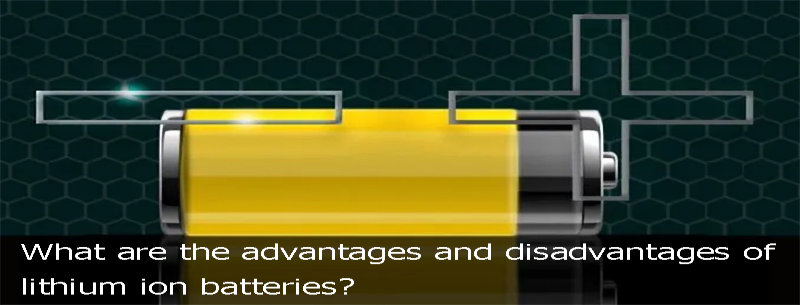
High energy density
As you’ve read earlier, Li-ion batteries are lightweight and can power devices for longer durations due to their high energy density. Technological companies prefer using lithium ion batteries to power devices, including some electric bikes and cars. Therefore, lithium batteries are used in many portable devices, such as electronic cigarettes, power tools, household portable energy storage and so on.
Higher voltage per cell
A ternary Li-ion battery cell has a nominal voltage of 3.7V. Other battery types, such as the Ni-Cad battery, have a nominal voltage of 1.5V per cell. Similarly, the lead-acid battery cell has a slightly higher nominal voltage of 2.0V, compared to the Ni-Cad battery. Here’s the deal: Higher voltage means that your battery can transmit more current – in other words, a higher electrical potential. Lower
Self-discharge rates
Li-ion batteries have the least self-discharge rates at around 3.5% per month. We recommend storing your lithium ion battery in a cool dry place, away from other metals to reduce self-discharge.
② Demerits of using Li-ion batteries
Here are the three primary disadvantages associated with using Li-ion batteries:
Cost
The cost of manufacturing lithium ion batteries is 40% more than that of manufacturing nickel-based batteries. That means that the cost of buying a Li-ion battery is more expensive compared to other battery types. But in the long run, they are cost-effective as they can be recharged with a total efficiency of up to 4,000 cycles, which is last longer and durable than other batteries.
Safety issues
When lithium ion batteries get damaged, they might swell and leak their liquid electrolyte, highly flammable. It, therefore, means that the battery can explode if it gets damaged or if it is mishandled. However, as technology progresses, the use of gel electrolytes has basically solved the safety problem. In addition, the presence of BMS for lithium ion battery can also avoid risks such as thermal runaway.
3.What is a solid state battery?
Solid-state batteries are an emerging battery technology, which is a battery that uses solid electrodes and solid electrolytes. Since it does not require a separator, and the solid electrolyte can use a lithium metal negative electrode, it can theoretically avoid lithium dendrites penetrating diaphragm. Compared with traditional liquid lithium batteries using organic solvent electrolytes, solid state batteries have superior security because they do not have the risk of thermal runaway caused by leakage and gas generation.
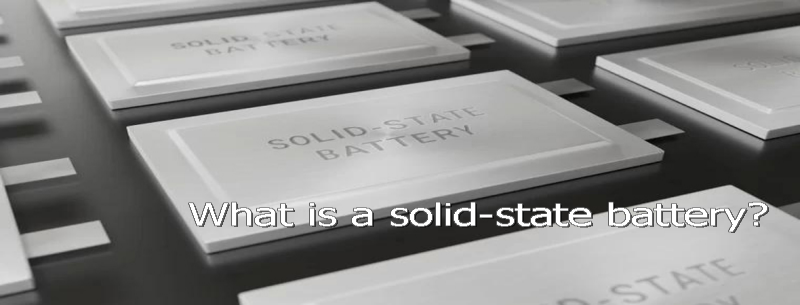
4.What are the advantages and disadvantages of solid-state batteries?
① Advantages of using solid state batteries
Here are some of the benefits associated with using solid state batteries:
Smaller and more lightweight (more than Li-ion batteries)
Solid state batteries have a higher energy density compared to other battery types. They are so strong that they produce more energy (approximately 2.5x) than a traditional liquid Li-ion battery. Having high energy density is probably the most outstanding benefit of using solid state batteries.
Safer compared to other battery types
It is worth noting that traditional lithium-ion batteries use liquid electrolytes, which are highly flammable. However, most of the lithium-ion batteries currently use gel electrolytes, especially TYCORUN ENERGY's batteries, which all use gel electrolytes, so there is no risk of battery leakage like that of liquid lithium batteries. Since solid state batteries do not have a liquid electrolyte, they can rarely explode and catch fire. It is normal for the battery to get quite hot during use, but it cannot cause a fire since it does not have a liquid electrolyte.
Easier to manufacture
Solid state batteries are easier to manufacture compared to other types of batteries that use liquid electrolytes. A solid electrolyte that simultaneously acts as the separator reduces the materials required to manufacture solid state batteries. It also reduces the energy used during the manufacturing process.
Fast charging
Solid state batteries charge faster compared to other battery types. They can recharge approximately five to six times faster than other battery types.
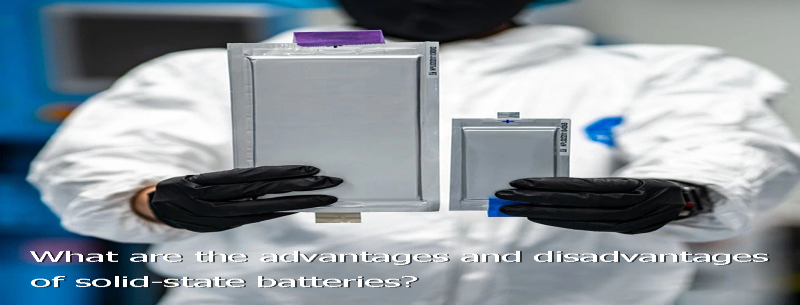
② Demerits of using solid state batteries
Here are some of the disadvantages associated with using solid state batteries:
Cost
Since solid state batteries have lots of benefits, their production cost is higher than other battery types, including lithium ion batteries. Nowadays, due to the incomplete supply chain system of solid-state batteries and the need for new materials to produce good electrolytes, the manufacturing cost of solid-state batteries will undoubtedly be higher.
Difficulties in mass production
It is difficult to produce solid state batteries in large quantities. This difficulty is brought about by the solid-to-solid interface, which is susceptible to poor contact. It, thus, means that mass production will be difficult since industrialization cannot be carried out as quickly as it would have been with lithium ion batteries.
Solid state batteries are still under development
Since the solid-to-solid interface causes poor contact, leading companies still conduct research. This research aims to develop the ideal solid electrolyte that will enhance conductivity.
5.How long do solid state batteries last?
Solid state batteries are expected to last for at least 10,000 charging cycles. This is almost double what Li-ion batteries offer since they have an average of 4,000 charging cycles. In the contrast of solid state batteries vs lithium ion in terms of lifespan, solid-state batteries seem to have longer cycle life, but this is only theoretical data and has not yet become a reality. For now, lithium-ion batteries are still the longest-lasting batteries.
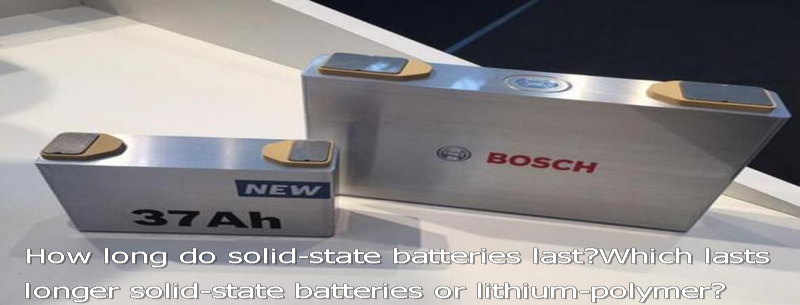
6.What are the differences between solid state batteries vs lithium ion?
As two advanced battery technologies, the solid state batteries vs lithium ion is bound to be of concern. The opposition may be presented in their differences-of solid state batteries vs lithium ion.There are several differences between the solid state and Li-ion batteries. Check them out:
① Weight
This case is the difference in weight between solid state batteries vs lithium ion. Since solid state batteries have a higher energy density compared to lithium ion batteries. It certainly means that the former is lighter than the latter. Solid state batteries are also smaller in size, compared to Li-ion batteries. In fact, lithium batteries are already the lightest in commercial batteries.
② Materials used to manufacture these batteries
Li-ion batteries contains a liquid/gel electrolyte, which are made from non-ferrous metals such as lithium, cobalt, copper, and manganese. Solid-state batteries, on the other hand, have electrolytes can be made from solid polymers, ceramics (phosphates, sulfides, and oxides) or other materials, and they don't need a diaphragm.
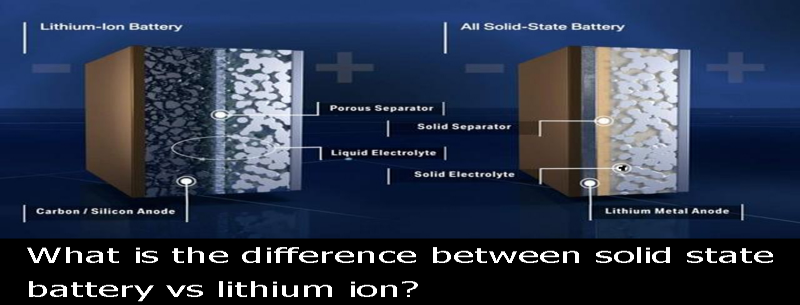
③ Performance
Lithium ion batteries are more likely to perform better during conduction than solid state batteries. The solid-to-solid interface causes poor conduction, giving the more industrialized Li-ion battery an upper hand. However, when recharging, the solid state battery has the upper hand compared to all other battery types. It can recharge almost five times faster than other battery types.
④ Cost
Which are more costly solid state batteries vs lithium ion? Obviously the former is more expensive than the latter. Because the battery technology is still being developed, the materials used in its production are almost entirely new. It is not estimated yet what would be the final cost of this technology, but it will undoubtedly be more costly.
⑤ Application
Both solid state and lithium ion batteries have one similar application - they are both used to power electric cars and wearable devices such as smartwatches. However, that is not the only application these two battery types have. Solid state batteries are further used in aerospace and in medical equipment such as heart pacemakers. Li-ion batteries, on the other hand, are used to power devices such as smartphones, laptops, tablets, etc. You can find more details about solid state batteries vs lithium ion in the following article.
7.Are solid state batteries better than Li-ion batteries?
Yes, solid state batteries are, in a way, more beneficial than lithium ion batteries. Solid state batteries cannot catch fire, as the electrolyte is in a solid state, unlike a Li-ion battery which uses liquid electrolyte. They also charge significantly faster compared to other battery types. Solid state batteries have a higher energy density, making them better than Li-ion batteries, meaning that solid state batteries pack a lot of power and they are smaller and lighter.
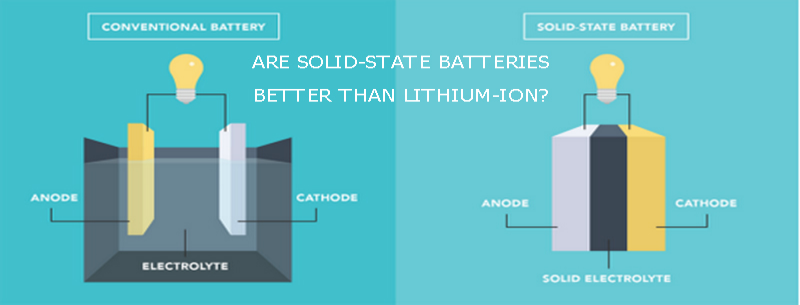
But it is worth noting that among all the batteries that have been commercialized so far, lithium-ion batteries are already the most superior batteries in terms of lifespan, energy density, self-discharge rate, weight, environmental protection, no maintenance, and no memory effect. They are already the lightest of all commonly used batteries. Which one to choose- solid state batteries vs lithium ion? You can refer to the above.
8.Is a lifepo4 battery a solid state battery?Will lithium be used in solid-state batteries?
No, LiFePO battery is a lithium-ion battery but not a solid-state battery. Compared with the traditional liquid lithium-ion battery, its biggest difference is that it has a gel electrolyte. Semi-solid lithium iron phosphate batteries are relatively safe energy storage devices among current battery types.
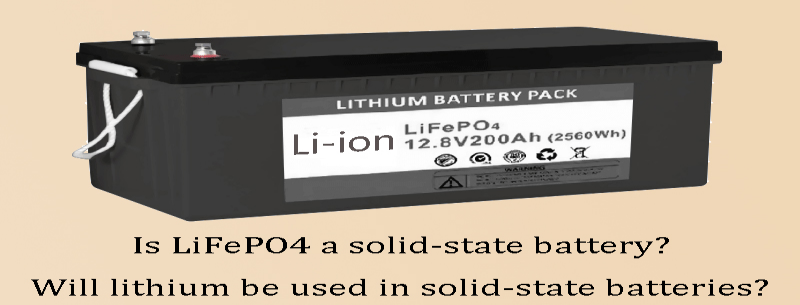
LiFePO4 batteries are more likely to be used in electric vehicles because of their solid state nature. Here’s the deal: lithium is used in solid state batteries. Anode materials consist of lithium alloys and metallic lithium. On the other hand, cathode materials consist of lithium-based oxides and phosphates.
9.How soon will solid state batteries be available?
Solid-state lithium-ion battery technology is still young and there are still some key technical issues remain to be solved. In addition, the cost of producing solid-state lithium batteries is much higher, so its mass production and application are still far away from us. Hence, Li-ion batteries are more feasible when referring solid state batteries vs lithium ion.
Lithium-ion batteries are currently the best battery technology on the market because of their many advantages over other batteries. Coupled with the use of colloidal electrolytes, battery performance has been comprehensively improved. Since the foundation for mass production is already in place, future lithium battery technology can also be developed on the basis of the existing industrial chain.
10.Summary
In general, this article may contribute insight into the public concern of solid state batteries vs lithium ion. Li-ion and solid state batteries are in the family of rechargeable batteries. When comparing solid state batteries vs lithium ion, the primary difference between these two batteries is that lithium ion batteries use a liquid electrolyte to transport electrons through the battery's separator. But lithium-ion batteries are now using gel electrolytes to reduce the risk of leakage and improve safety. In contrast, solid state batteries use a solid electrolyte and do not require separators.
Both batteries are packed with many benefits, but the solid state battery seems to be more outstanding than the Li-ion battery. The key benefit that gives the solid state battery an upper hand is that it is safer to use and recharges quickly. Its main demerit is its cost, which is more expensive than other battery types. And more critically, mass production of solid-state batteries will not be possible in the next 5-10 years, and lithium-ion batteries, which serve as long lasting battery, will remain the mainstream of the market for a long time to come.